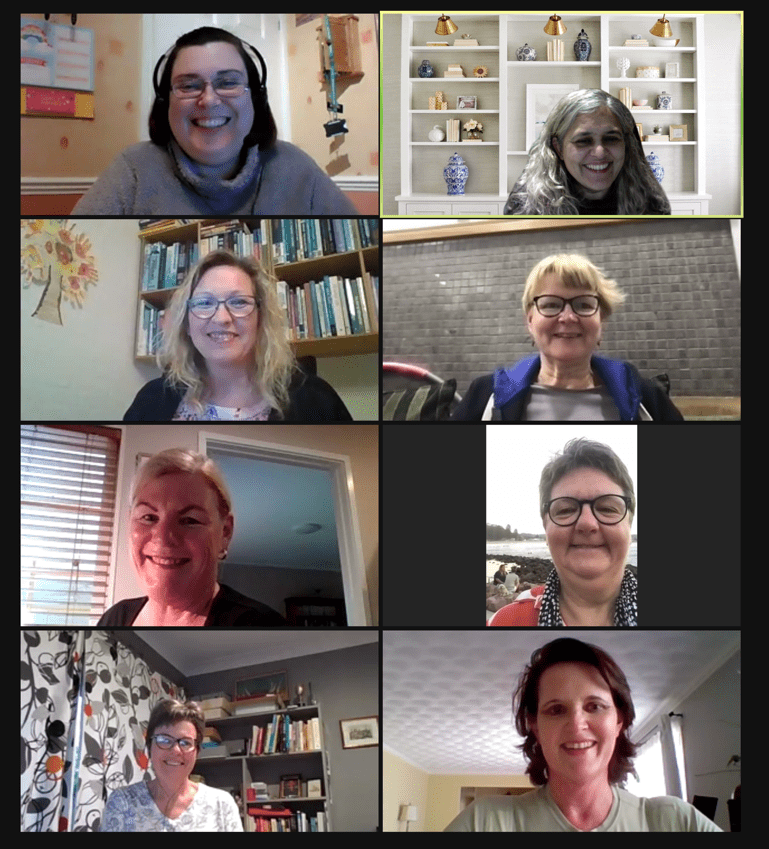This is the final blog of a series running from October on raising awareness about menopause. This blog focuses on menopause in the workplace which is part of #MenopauseAwarenessMonth2021
BUPA and the Chartered Institute for Personnel and Development (CIPD) conducted a national survey in 2019 and found that three in five women (usually aged 45-55) were affected by the menopause at work and that almost 900,000 women in the U.K. left their jobs because of menopausal symptoms.
This can mean workplaces losing or having workplace interruptions where women go off sick or leave “at the peak of their experience” which can impact a workplace including productivity, knowledge and skill bank, mentors, supervisors, and experts. Women in this age group are likely to be experienced staff. Leaving at this time can contribute to the gender pay-divide, and the lack of women in senior positions. Menopause discrimination is largely covered under three protected characteristics: age, sex and disability discrimination under the Equality Act 2010,
Women over 50 are the fastest growing demographic in the workplace.
Around 900,000 women have quit their jobs due to the menopause.
Three in four women experience menopause symptoms and one in four have severe symptoms.
Without workplace support for women, symptoms such as anxiety, brain fog, fatigue, poor memory, hot flushes, and irregular and heavy bleeding can lead to:
- Loss of confidence
- Decreased productivity
- Taking time off work
- Less satisfaction with their job
- Making the difficult decision to leave the workforce
Together, we can encourage organisations to take positive action and support all staff affected by menopause in the workplace.
The Health and Safety at Work Act 1974 provides for safe working, which extends to the working conditions when experiencing menopausal symptoms. There are a number of organisations, charities and campaigners working on this issue and it has also been raised at parliamentary committee level calling for an inquiry. This call for change has moved the agenda on menopause forward including changes in HRT prescription and cost. It is time to address this. Menopause needs a voice in the workplace.
Research on Menopause in the workplace

Professor Rhonda Wilson (Australia) and Dr Camille Cronin (United Kingdom) are leading an international research consortium that is developing digital health interventions to support the self-determination of health, wellbeing, and quality of life for women throughout the normal life stages of perimenopause and menopause.
The group from all over the world include nurse scientists Cronin & Bidwell (UK), Wilson & Carey (Australia), Hughes (New Zealand), Kaunonen (Finland), Donevant (USA) and Marcussen (Denmark) have been conducting research on nurses’ experiences of menopause in the workplace. The group meet monthly for research meetings via zoom and produce quarterly newsletters. Visit our consortium webpage to read up on our activities, research, publications, and news.

Research team on Zoom across the time zones.
World Menopause Day 18th October 2021
The School of Health and Social Care hosted a series of lunchtime webinars for staff and students at the University of Essex. Menopause warriors were invited to come and share their knowledge and experience on menopause, and it was an absolute pleasure to host and to hear them speak. You can listen back to the recordings here.
Guest speakers
-
Introduction to menopause
Sally Roberts
RN, RM, MSc, DFSRH, PGA Med Ed SRH, FRT Contraception, Relationships and Sexual Health Consultant >
- #knowyourmenopause
Clare Shepherd,
Nutritional Therapist NHF.Adv. Dip FNTP, Health Coach, Speaker
This is a recording of a discussion. The views and opinions expressed within the discussion are those of the participants and do not necessarily represent those of the University of Essex.
Resources on supporting menopause in the workplace
A 7-minute video of how the effects of menopause impact the workplace.
A 6-minute video on how to introduce changes in the workplace to support those going through the menopause transition
If you want to know more about the menopause and terms commonly used to describe menopause the International Menopause Society breaks down these terms for us. They have also shared this year’s topic for menopause – bone health.
Women’s Health Concern is also a great place to find out evidence-based information to help you understand menopause. They provide a range of factsheets from considering HRT and other useful resources to new information on using cognitive behaviour therapy (CBT) for menopausal symptoms. On World Menopause Day 2021 the British Menopause Society also release an update on resources for menopause in the workplace.
To help you TALK, TRACK and TREAT your symptoms use this #KnowYourMenopause menopause pack and display this poster on menopause symptoms so more people can understand what it is.
Help everyone to understand and prepare for menopause.



